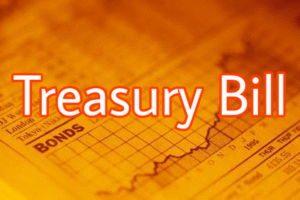1. Introduction: FDI as a Growth Catalyst
Foreign Direct Investment (FDI) has become one of the most vital components of Ghana’s growth strategy. It brings capital, technology, management skills, and access to international markets — all essential for a developing economy transitioning toward industrialization.
According to the Ghana Investment Promotion Centre (GIPC), Ghana continues to attract billions in annual FDI inflows, with key contributions from China, the United Kingdom, India, South Africa, and the United States.
2. Economic Significance of FDI
FDI contributes to Ghana’s economy in multiple ways:
-
Capital Formation: Increases the pool of investable funds for industrial and infrastructure projects.
-
Job Creation: Expands formal employment, especially in manufacturing, construction, and services.
-
Technology Transfer: Facilitates adoption of modern production methods.
-
Export Diversification: Encourages non-traditional exports through foreign-owned industries.
-
Revenue Mobilization: Expands the tax base through multinational participation.
3. Historical Overview: From SAPs to Stability
The liberalization policies of the Structural Adjustment Programmes (SAPs) in the 1980s opened Ghana’s doors to global capital. Since then, continuous political stability and democratic governance have built investor confidence.
Major milestones include:
-
Establishment of GIPC Act 865 (2013) for investor protection.
-
Introduction of Free Zones Act promoting export-oriented investment.
-
Development of Public-Private Partnership (PPP) frameworks for infrastructure.
4. Sectoral Distribution of FDI
FDI has diversified across key sectors:
-
Energy & Mining: Investments in oil, gas, and renewable energy.
-
Manufacturing: Growth in food processing, beverages, and automotive assembly (e.g., Toyota, VW).
-
Telecommunications & Fintech: Companies like MTN, Vodafone, and various digital startups drive connectivity and inclusion.
-
Agriculture: Foreign agribusinesses invest in agro-processing and irrigation.
-
Real Estate & Infrastructure: Expansion of housing, logistics, and industrial parks.
5. Economic Impact
FDI has supported Ghana’s transition to a service- and industry-led economy, contributing to:
-
GDP growth averaging 5–6% annually before the pandemic.
-
Job creation in export manufacturing zones.
-
Improved trade balance through export diversification.
-
Enhanced competitiveness under the AfCFTA.
However, the benefits are uneven. While some investments boost productivity, others focus on extractive industries with limited local value addition.
6. Challenges to FDI Growth
Key barriers include:
-
High cost of power and logistics.
-
Bureaucratic red tape and inconsistent policy enforcement.
-
Land acquisition challenges.
-
Currency volatility and limited local financing options.
Addressing these constraints is crucial for Ghana to maintain investor confidence and compete with regional peers like Kenya, Nigeria, and Côte d’Ivoire.
7. The Future of FDI: Opportunities and Outlook
With Accra hosting the African Continental Free Trade Area (AfCFTA) Secretariat, Ghana stands to become West Africa’s investment hub. The government’s strategy now focuses on:
-
Industrial diversification through 1D1F and manufacturing incentives.
-
Green investment in renewable energy and sustainable agriculture.
-
Digital economy acceleration through technology partnerships.
Strong governance, transparent contracts, and efficient dispute resolution will be key to ensuring that FDI benefits local communities as well as investors.
8. Conclusion: Building a Shared Prosperity
Foreign Direct Investment is more than capital inflow — it is a development partnership. For Ghana, the challenge is not only to attract investors but to ensure their investments empower local enterprise, create decent jobs, and strengthen economic resilience.
As global competition for capital intensifies, Ghana’s ability to maintain political stability, uphold regulatory credibility, and expand infrastructure will determine how far FDI can drive its next phase of growth.
FAQs
1. How much FDI does Ghana attract annually?
FDI inflows average between US$2–3 billion per year, depending on global trends.
2. What are Ghana’s top FDI source countries?
China, UK, USA, India, South Africa, and the Netherlands.
3. Which sectors receive the most FDI?
Energy, manufacturing, telecommunications, and real estate.
4. What is the role of GIPC?
GIPC promotes, facilitates, and monitors all foreign investment in Ghana.
5. How can Ghana improve FDI inflows?
By reducing bureaucracy, improving infrastructure, ensuring policy consistency, and strengthening local participation.
Source: Accra Business News
Disclaimer: Some content on Accra Business News may be aggregated, summarized, or edited from third-party sources for informational purposes. Images and media are used under fair use or royalty-free licenses. Accra Business News, an extension of Accra Street Journal is a subsidiary of SamBoad Publishing Ltd under SamBoad Holdings Ltd, registered in Ghana since 2014.
For concerns or inquiries, please visit our Privacy Policy or Contact Page.
📢 GET FREE JOBS + TIPS
Others are getting instant job updates and career tips on our WhatsApp Channel. Why miss out?
📲 Join SamBoad Jobs Channel Now
















